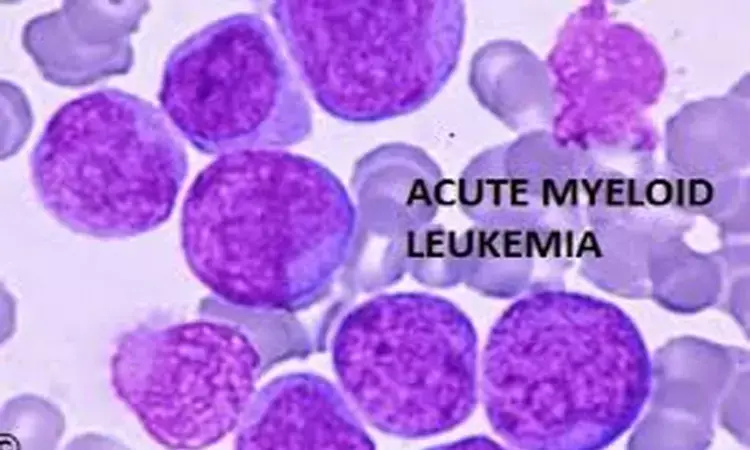- Home
- Medical news & Guidelines
- Anesthesiology
- Cardiology and CTVS
- Critical Care
- Dentistry
- Dermatology
- Diabetes and Endocrinology
- ENT
- Gastroenterology
- Medicine
- Nephrology
- Neurology
- Obstretics-Gynaecology
- Oncology
- Ophthalmology
- Orthopaedics
- Pediatrics-Neonatology
- Psychiatry
- Pulmonology
- Radiology
- Surgery
- Urology
- Laboratory Medicine
- Diet
- Nursing
- Paramedical
- Physiotherapy
- Health news
- Fact Check
- Bone Health Fact Check
- Brain Health Fact Check
- Cancer Related Fact Check
- Child Care Fact Check
- Dental and oral health fact check
- Diabetes and metabolic health fact check
- Diet and Nutrition Fact Check
- Eye and ENT Care Fact Check
- Fitness fact check
- Gut health fact check
- Heart health fact check
- Kidney health fact check
- Medical education fact check
- Men's health fact check
- Respiratory fact check
- Skin and hair care fact check
- Vaccine and Immunization fact check
- Women's health fact check
- AYUSH
- State News
- Andaman and Nicobar Islands
- Andhra Pradesh
- Arunachal Pradesh
- Assam
- Bihar
- Chandigarh
- Chattisgarh
- Dadra and Nagar Haveli
- Daman and Diu
- Delhi
- Goa
- Gujarat
- Haryana
- Himachal Pradesh
- Jammu & Kashmir
- Jharkhand
- Karnataka
- Kerala
- Ladakh
- Lakshadweep
- Madhya Pradesh
- Maharashtra
- Manipur
- Meghalaya
- Mizoram
- Nagaland
- Odisha
- Puducherry
- Punjab
- Rajasthan
- Sikkim
- Tamil Nadu
- Telangana
- Tripura
- Uttar Pradesh
- Uttrakhand
- West Bengal
- Medical Education
- Industry
Venetoclax combination therapies found effective against challenging subtypes of acute myeloid leukemia

ATLANTA - Combination therapies including venetoclax and another therapy have displayed promising results against subtypes of acute myeloid leukemia (AML) that are particularly difficult to treat, including relapsed or refractory AML with a specific mutation, high-risk AML and treated secondary AML. Researchers from The University of Texas MD Anderson Cancer Center presented numerous studies involving venetoclax combination therapy for AML at the 2021 American Society of Hematology (ASH) Annual Meeting.
AML is a type of leukemia in which the myeloid stem cells produce immature blood cells, rather than mature, healthy cells, causing anemia and risk of bleeding and infection. Most patients with AML are not cured by standard-of-care treatments, and researchers are working to fill the unmet need for new, more effective therapies.
Relapsed/refractory (R/R) FLT3-mutated (FLT3+) AML is typically resistant to venetoclax, and response durations are short when treated with single agent FLT3 inhibitors. A multicenter study presented by Naval Daver, M.D., associate professor of Leukemia, included 54 patients with R/R FLT3+ AML who were treated with a combination of venetoclax and the FLT3 tyrosine kinase inhibitor, gilteritinib. The combination therapy was safe and well-tolerated, other than frequent but manageable cytopenia that occurred in 80% of the trial participants, and it produced an encouraging composite complete response rate in 74.5% of the FLT3+ patients. Additionally, the therapy cleared the FLT mutation in more than half (56.7%) of patients who responded to treatment, which may contribute to longer survival.
The study was funded by Astellas Pharma, AbbVie and Genentech. Daver has received research support and served in a consulting or advisory role for Astellas Pharma, AbbVie and Genentech. A complete list of collaborating authors and their disclosures can be found within the abstract here.
"The high complete response rate for newly diagnosed patients, especially high-risk patients such as those with TP53 mutations, is especially encouraging," Daver said. "Adding magrolimab to the existing venetoclax and azacitidine combination will be evaluated in a randomized multinational Phase III study in older/unfit patients with newly diagnosed AML."
The study was funded by Gilead and Genentech. Daver has received research support and served in a consulting or advisory role for Genentech. A complete list of collaborating authors and their disclosures can be found within the abstract here.
Retrospective analysis of frontline treatment approach with treated secondary AML (Abstract 794)
"The response rates associated with HMA and venetoclax therapy imply that this combination therapy may be preferable to the typical chemotherapy-based approaches in treated secondary AML," Venugopal said. "However, the prognosis for treated secondary AML is poor, and effective treatment options for this high-risk patient subset is an urgent unmet need."
Hina Zahid Joined Medical Dialogue in 2017 with a passion to work as a Reporter. She coordinates with various national and international journals and association and covers all the stories related to Medical guidelines, Medical Journals, rare medical surgeries as well as all the updates in the medical field. Email: editorial@medicaldialogues.in. Contact no. 011-43720751
Dr Kamal Kant Kohli-MBBS, DTCD- a chest specialist with more than 30 years of practice and a flair for writing clinical articles, Dr Kamal Kant Kohli joined Medical Dialogues as a Chief Editor of Medical News. Besides writing articles, as an editor, he proofreads and verifies all the medical content published on Medical Dialogues including those coming from journals, studies,medical conferences,guidelines etc. Email: drkohli@medicaldialogues.in. Contact no. 011-43720751


